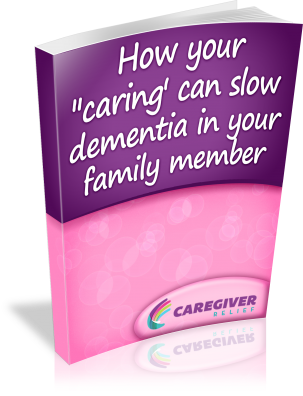Effective Stress Management for Caregivers of the Elderly
New research shows that utilizing problem-focused coping strategies can slow the progression of dementia in elderly family members. Learn about specific techniques for managing stress and improving the care environment for those with dementia.

Did you know that acquiring stress management skills as a caregiver for elderly individuals, especially those with dementia, can significantly improve both your quality of life and the well-being of the person you're caring for? Moreover, these coping strategies can even slow the progression of dementia, as demonstrated in a groundbreaking study called "The Cache County Dementia Progression Study," conducted by researchers at Utah State University in collaboration with John Hopkins.
This groundbreaking research has unveiled a profound connection between the caregiving environment and the rate of dementia progression. It's a beacon of hope for the millions of families grappling with this devastating disease, as it highlights the positive impact of tailored problem-focused coping strategies on slowing down the advancement of dementia. In a world where a definitive cure for this ailment remains elusive, this discovery is indeed encouraging.
But what exactly is problem-focused coping? This approach addresses stress in practical ways, targeting the root causes of stressors and working to eliminate or reduce them. The goal is to manage stress by addressing its underlying sources, essentially removing the emotional turmoil from the equation.
Here are a few problem-focused strategies to consider:
- Take Control of the Situation: Assess the environment and identify stress triggers. It could be something as simple as adjusting the volume on the TV or managing incoming phone calls. In more complex situations, like a family member wanting to "go home," you might need to develop a strategy to address this recurring issue.
- Gather Information: Become a detective, seeking to understand the dynamics of each situation. Identifying patterns and triggers can help you avoid future stressors. For instance, if your loved one experiences "sundowning," you can reduce stress by keeping the house well-lit, creating a quiet and peaceful atmosphere, or playing soothing music during evening hours.
- Evaluate Options: Adopt a problem-focused approach by setting both short-term and long-term goals for your family member and devising a care plan to achieve those objectives. If wandering is a concern, research and implement strategies to maintain their safety and decrease their agitation and anxiety.
Problem Focused Coping Strategies
While problem-focused strategies can be effective, it's essential to acknowledge that caregiving often elicits emotional responses. Many caregivers face grieving the loss of their family member. This emotional rollercoaster can lead to sadness, frustration, and anger. It's crucial to find outlets for sharing these emotions. The study found that caregivers who sought outside support and maintained social connections coped more successfully with stress using problem-focused strategies.
Approach caregiving as a challenging job, complete with the need for time off, breaks, vacations, and holidays. You have the right to respite care, so don't hesitate to ask other family members or utilize community resources to ensure you receive the breaks you need to safeguard your well-being. Caregiver stress not only impacts your health but can also contribute to elder abuse. Research now underscores that a positive approach to stress management can impact and potentially slow the progression of dementia. Therefore, taking better care of yourself is not only a choice but a responsibility.
Regularly monitor your stress levels and consider seeking support to help you navigate the caregiving journey effectively. You can even use stress assessment tools to gauge your well-being. Remember, by managing your stress, you're not only improving your life but also positively influencing the course of dementia for your loved one.
Monitor your stress levels on a regular basis get a test here
Caregiver Burnout Quiz. How Do You Rate?

You might also like this article:





